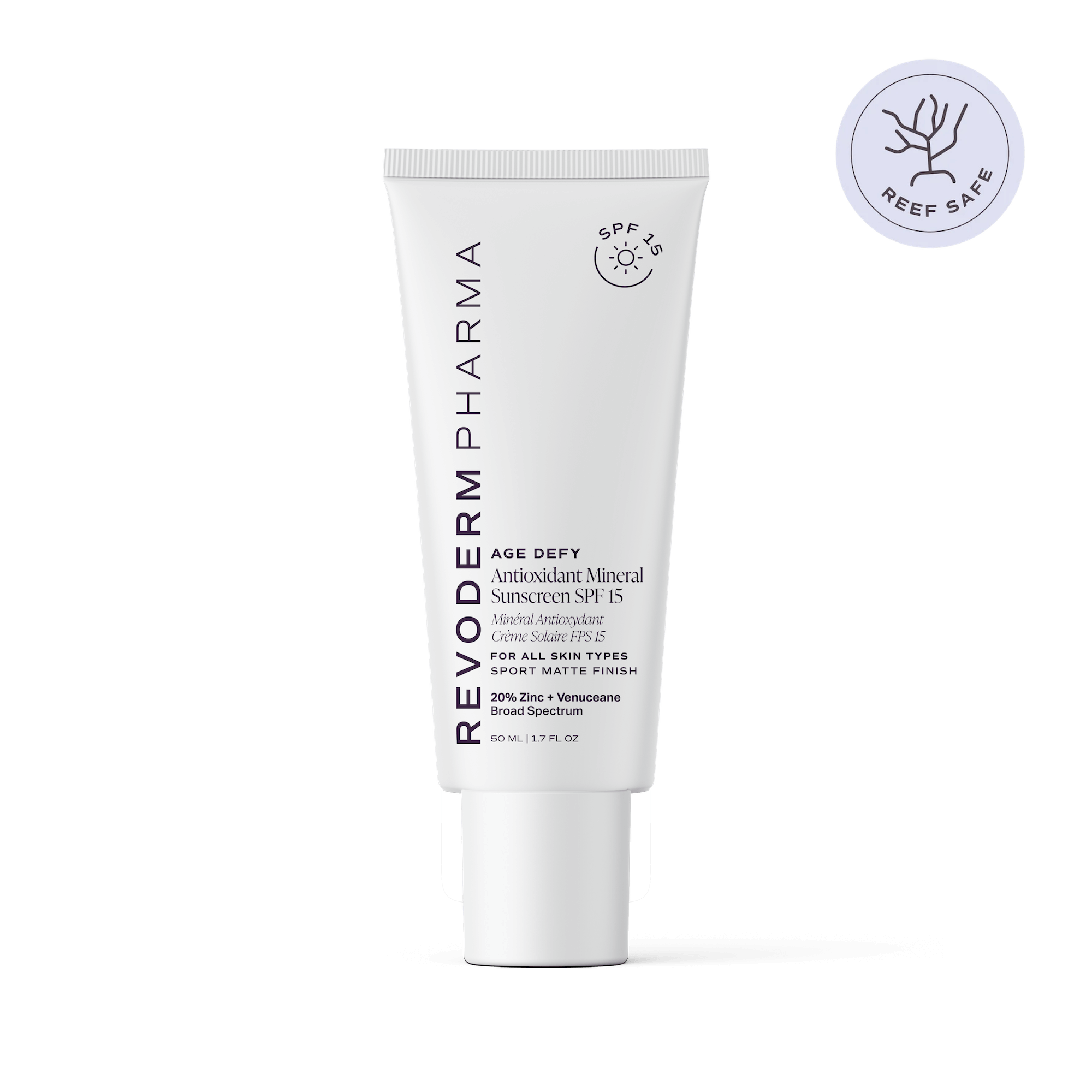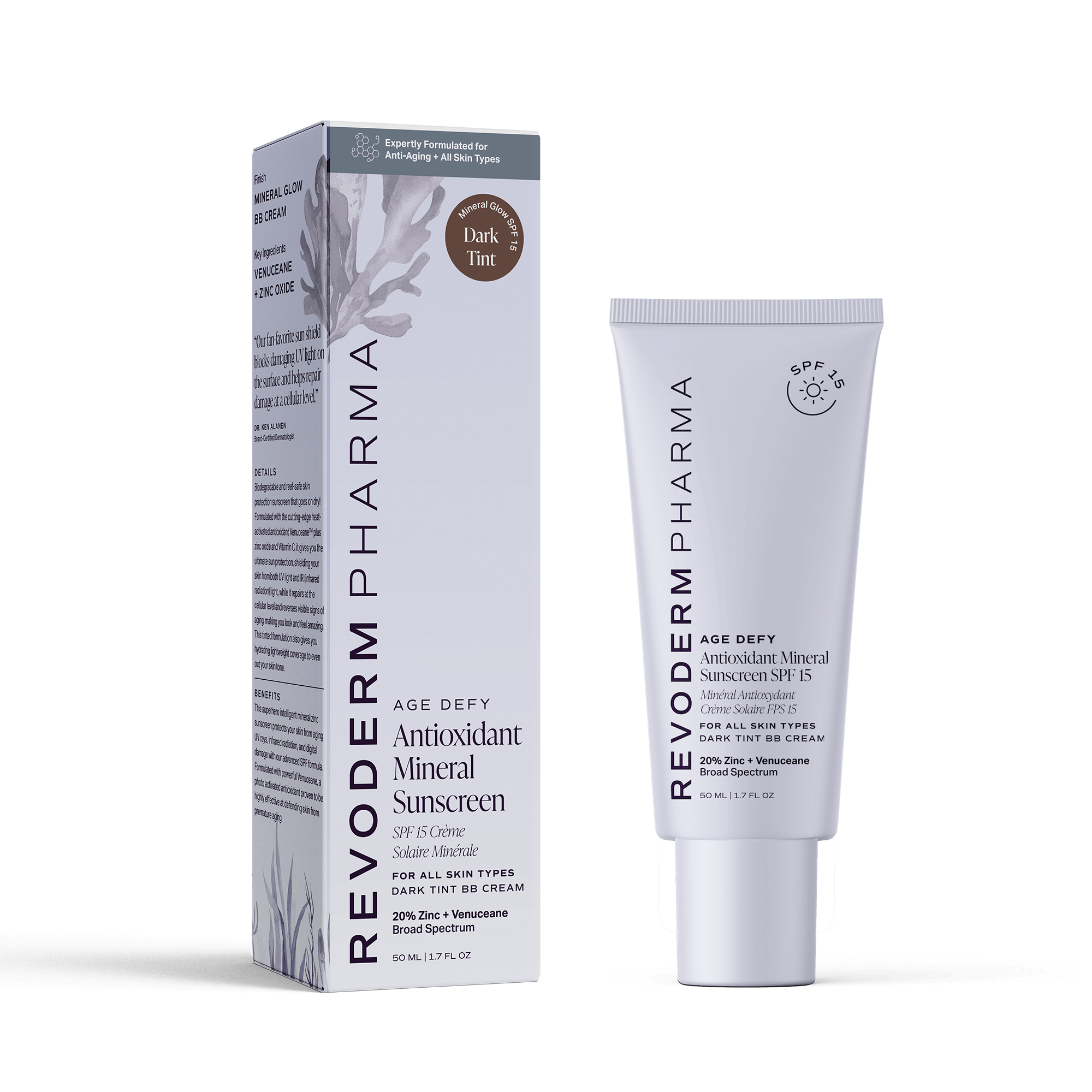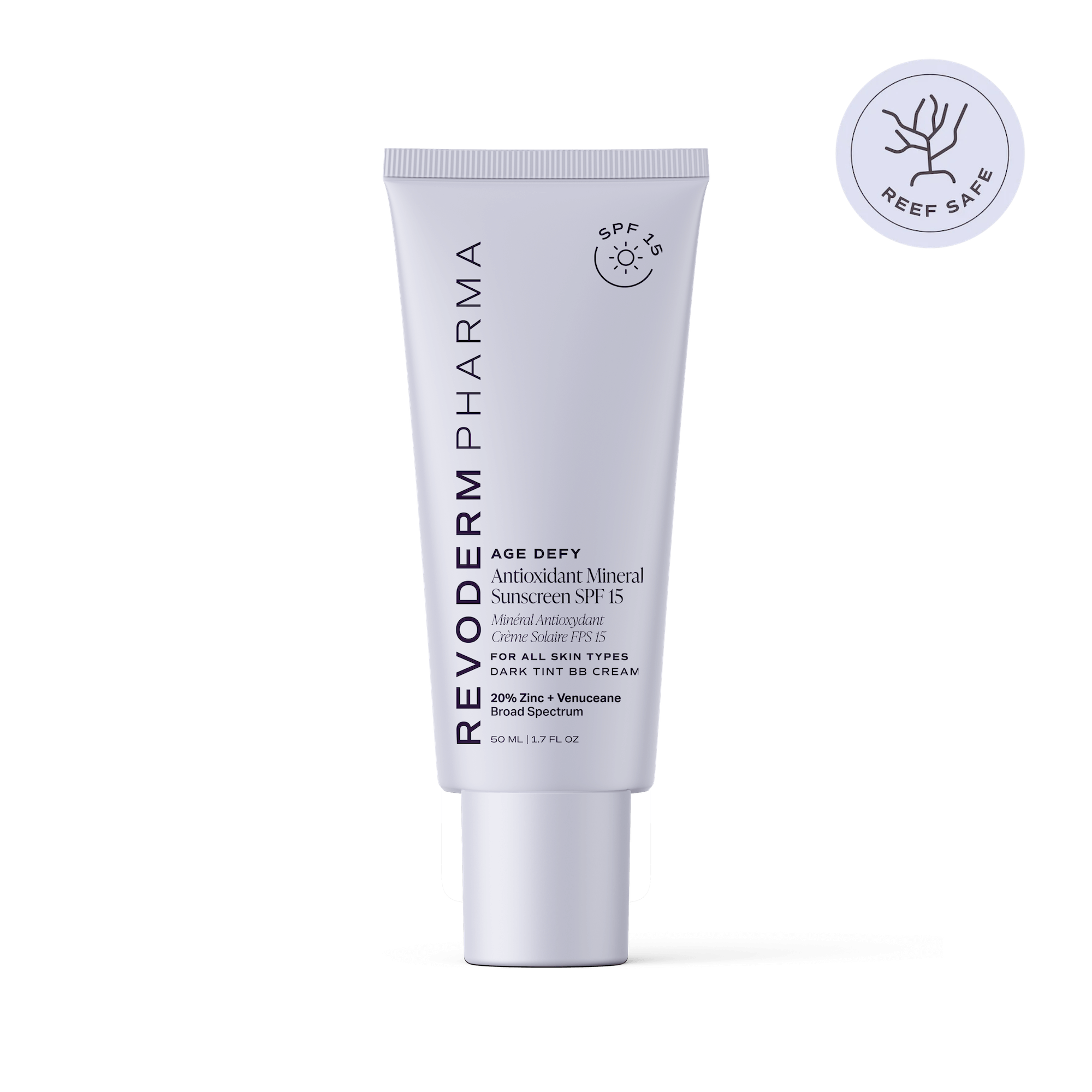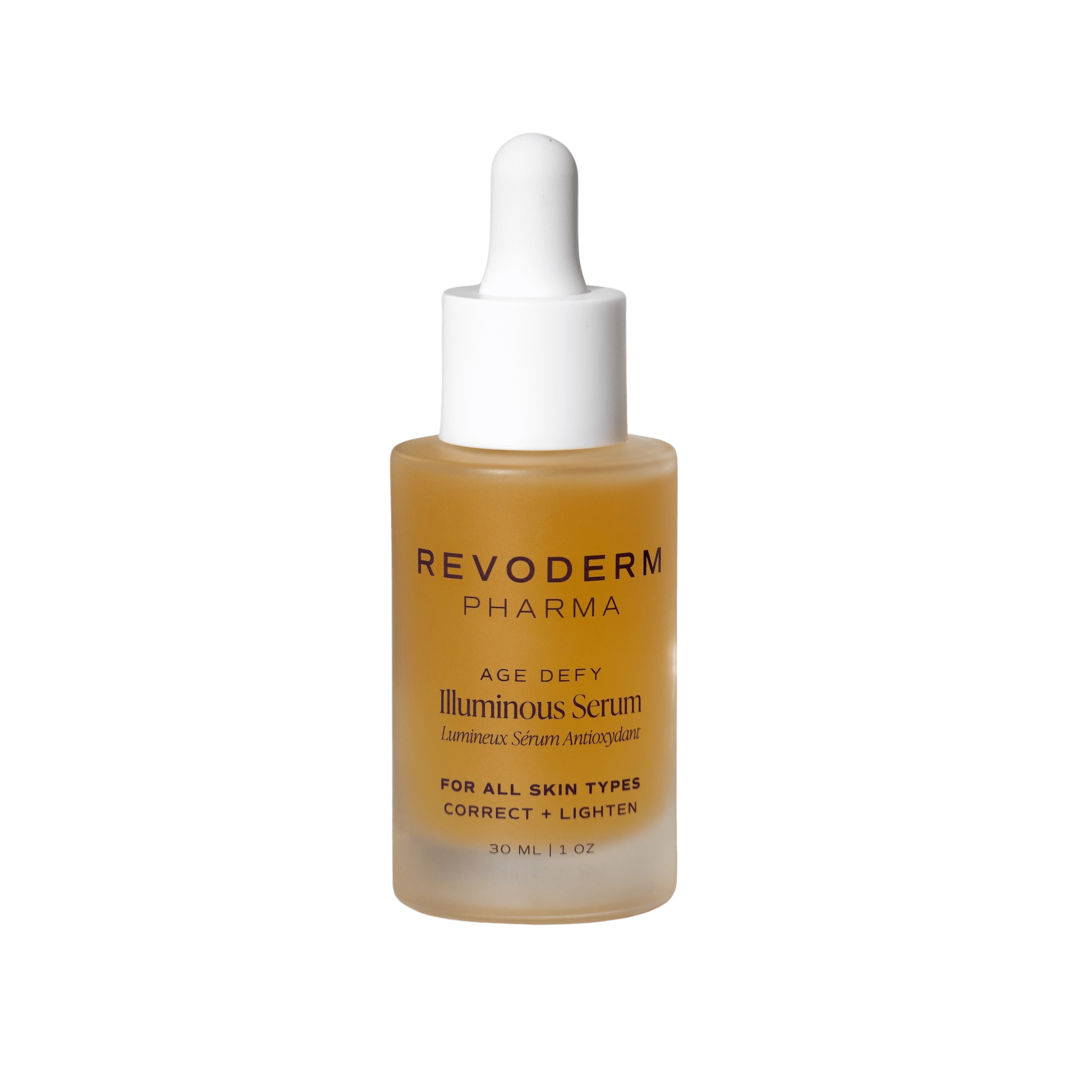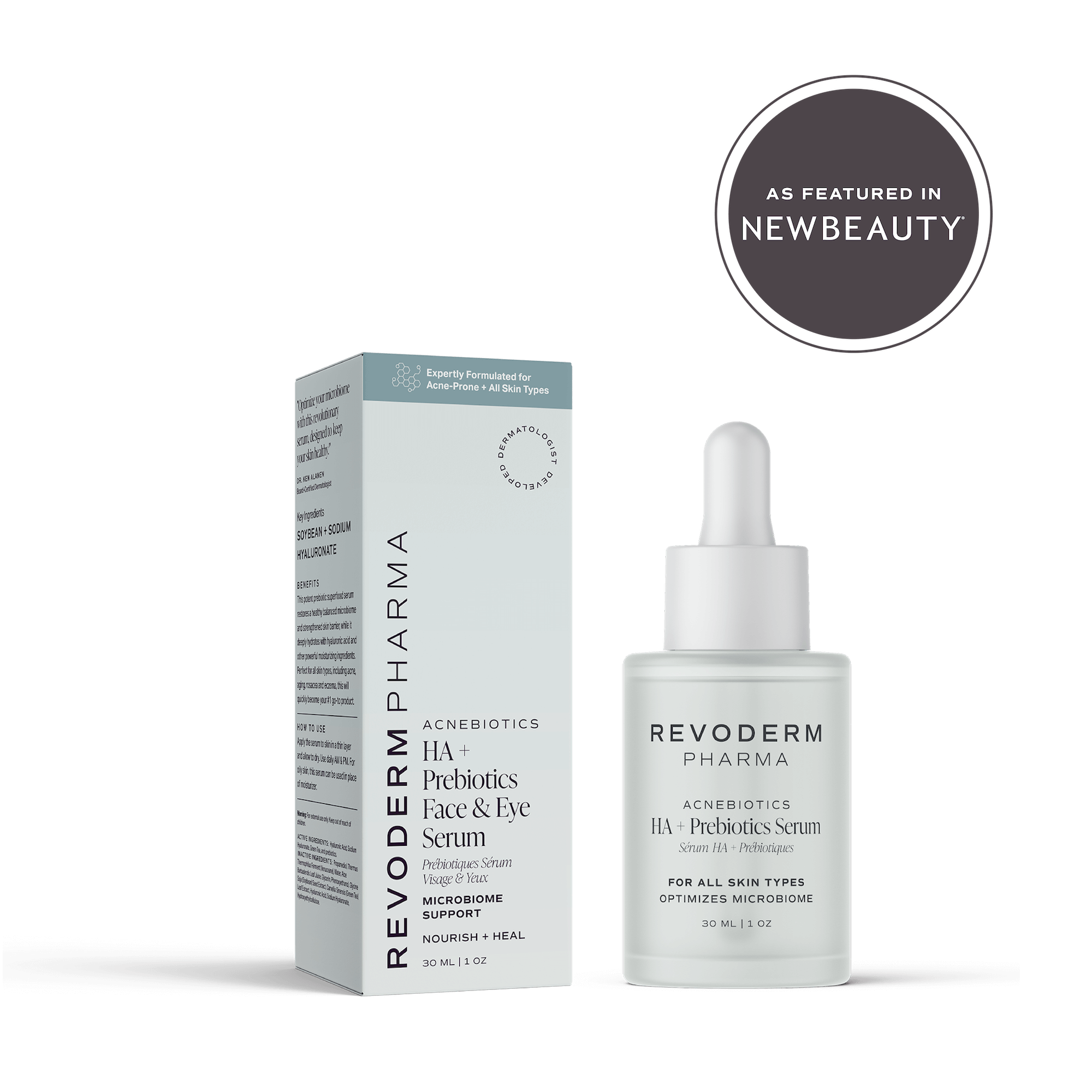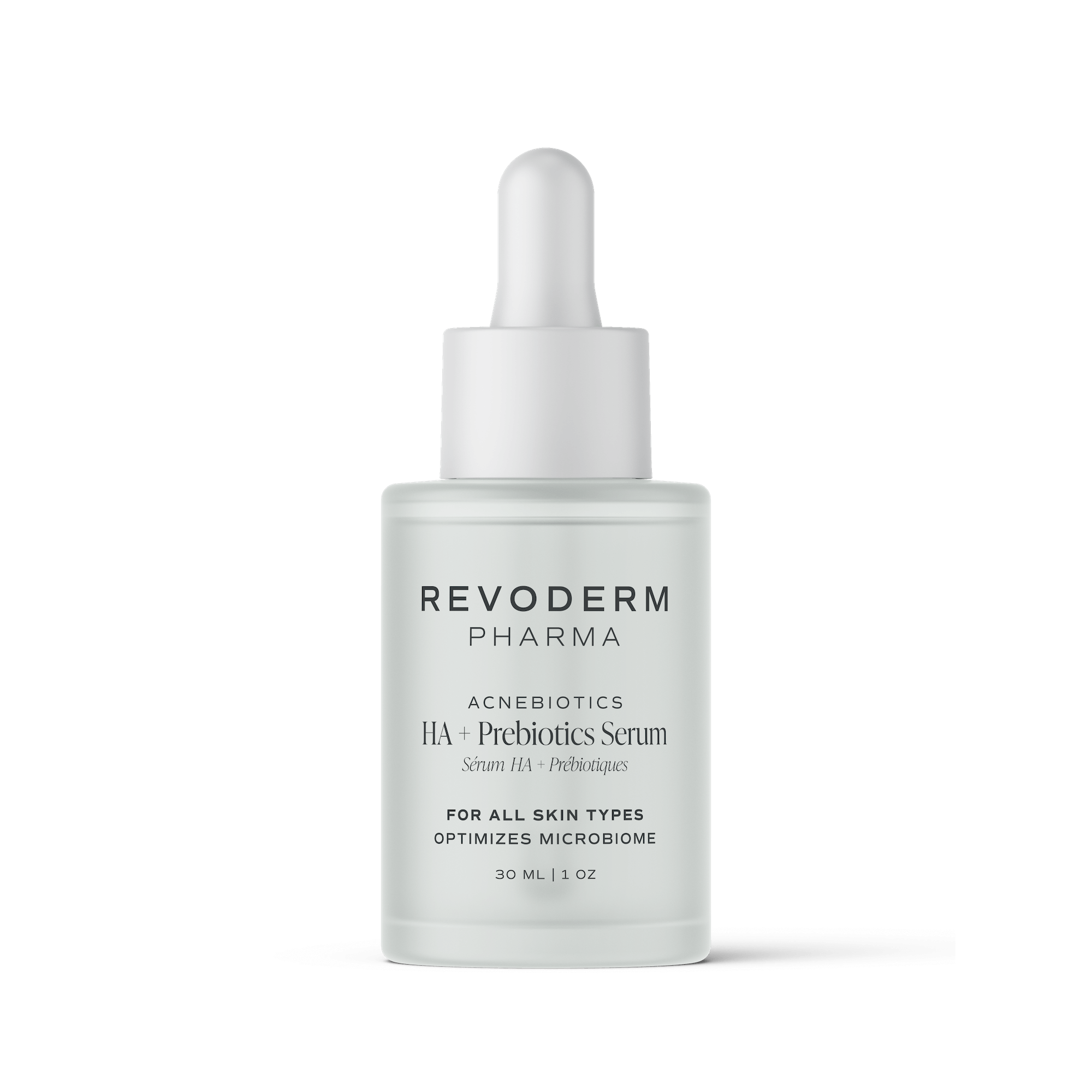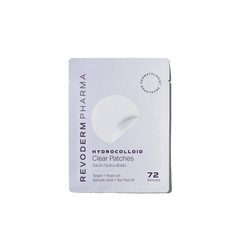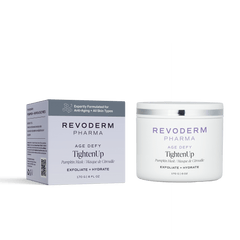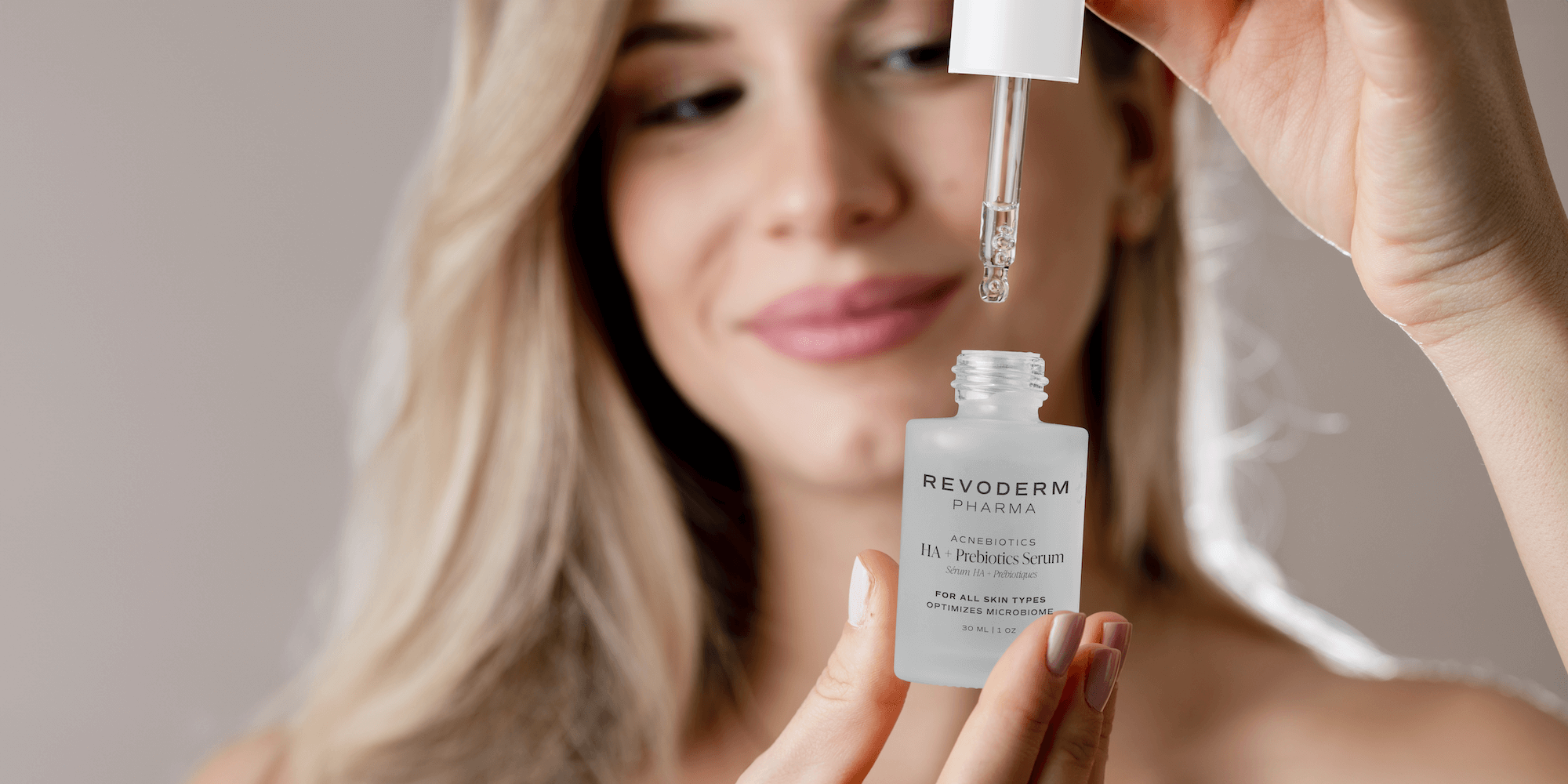by Dr. Ken Alanen and Ildikó Juhasz
Patients often ask me about home treatments for acne that are based on popular, but incorrect, myths. Acting on these myths can, unfortunately, do more harm than good. To clear the air, I want to share the truth about acne.
This information is based on research and decades of clinical knowledge. If your acne treatment is based on medical science, you will get better results.
1. Popping Pimples Is Terrible for Your Skin
I am often asked in clinic if it is okay to “pop” a pimple. Unfortunately, this is not the case. When a pimple is “popped,” it often ruptures deep inside your skin. This can lead to acne scarring, which can be permanent.
It's much better to use a concentrated benzoyl peroxide to help dissolve the surface of the clog so that all of the material within the pore can drain out. Revoderm Acne Spot Treatment was designed specifically for this purpose.

2. Bad Hygiene Does Not Cause Acne
Acne is caused by many factors including genetics, thick makeup, many comedogenic sunscreens and simple misfortune – but it does not reflect bad hygiene. In fact, if you wash and scrub your skin too much, it will often make the problem worse. That's why you shouldn’t use rubbing alcohol on your skin – it certainly “de-greases” the skin, but it leads to secondary overproduction of oil, making a bad thing worse.
The ideal cleanser is acneBeta Cleanser, which removes excess oil, sebum and debris from your skin without excessively drying it out. I am a fan of 2% salicylic acid with natural plant-based skin-calming extracts. Do this once or twice per day, but not more.
3. Toothpaste Does Not Help Acne
Contrary to popular belief, applying toothpaste to acne does not help. In fact, it makes it worse.
Toothpaste is basically a detergent and in that regard, it is not formulated for your skin. Ultimately, it is too irritating for acne.
4. You Don't Need To Exfoliate More
Just as you should NOT excessively cleanse your skin, you should also avoid excessive exfoliation. Too much scrubbing ultimately worsens complexion.
Loofahs and coarse sponges are to be avoided, especially if you are using them in the shower every day. Using them only reintroduces the bacteria and sebum and oil from the previous day.
Most scrubs on the market today are made from charcoal or are sugar-based. The particles in charcoal scrubs in our experience are too fine and ultimately add to the clogging tendency. Sugar scrubs are not ideal as they can ultimately “feed” bacteria within pores.
Revoderm Microdermabrasion Scrub is the ideal ingredient for an acne scrub. It's made with micronized pumice stone, which helps remove clogs and it is not comedogenic. Scrubs set the stage for everything else that you do for your skin care routine: pores are opened so that toners, prescription creams etc. can get to where they need to go – i.e., into the pores where the oil is made.
5. Diet Affects Acne
Diet can have a big effect on acne. It has been demonstrated in the recent past that pro-inflammatory diets and high carbohydrate diets are associated with acne. See (The relationship of diet and acne) and (Significance of diet in treated and untreated acne vulgaris) for more information.
Happily, there is no association of chocolate and acne.
6. Makeup Can Make Acne Worse
There is a justifiable desire to cover your pimples with makeup. However thick, oil-based preparations essentially “fill up” your pores, leading to more pimples and making a bad thing worse.
Many of us are not keen to give up makeup and so when you wear makeup, ensure that it is a mineral-based line. We love Jane Iredale for acne-prone skin.
7. Tanning Beds Are Bad for Acne
This is a big one. While it is absolutely true that ultraviolet light from tanning beds (and the sun, for that matter) helps minimize the inflammation within acne lesions, it also damages the DNA of your skin, which can increase the risk of skin cancer in the years to come. Excessive ultraviolet light also leads to wrinkles, irregular pigmentation and broken capillaries.
Many adults pursue anti-aging skin care and procedures to undo the damage caused by ultraviolet light incurred many years prior. Keep your skin young and healthy; avoid tanning beds completely and minimize ultraviolet light damage from sunshine by using a non-comedogenic zinc oxide, chemical-free sunscreen. We developed Age Defy sunscreen with this dilemma in mind.
8. Acne-Prone Skin Needs Moisturizer
Acne skin is very often oily, which makes it feel moisturized. But touch can be misleading. Acne skin is quite dry in most cases.
When you are thirsty, you drink water, not olive oil. This analogy is perfectly applicable to oily skin. Acne therapies are designed to slow down oil production. Many of the prescriptions (most creams and Accutane, for sure) for acne therapy add to the drying tendency. So, you should use a gentle non-comedogenic moisturizer and ideally a hyaluronic acid serum to hydrate your skin.
9. Antibiotics Can Be Good for Acne
There is an understandable desire to minimize antibiotic use for treating acne. Doxycycline, Tetracycline and Minocycline are commonly used, and they are typically highly effective for treating this condition. The criticism that they “work great when I am on them, but the acne comes back as soon as I stop” is legitimate.
We completely agree and often call antibiotics “the illusion of cure.” When antibiotics are in the therapeutic regimen, they should be viewed as a temporary measure. They hold the scar risk tendency at bay, which buys you the necessary time for the skin care and topical prescriptions to kick in.
Once the active acne is under control, however, the pills can be stopped and the topical regimen minimizes the relapse risk.
10. Acne Needs Treatment
We commonly hear that “you’ll grow out of your acne,” and yes, this is often true. But acne can be psychologically devastating, and untreated acne all too commonly causes scarring. Acne is not just a teenage issue, either — it often persists into middle age.
The ideal regimen is one that minimizes oil production, keeps the pores open, keeps the acne bacteria population in the skin to a minimum and is not irritating for your skin. An ideal acne regimen can prevent (or minimize) pimples and, by extension, acne scars. Reversing acne scars can be a very difficult and extensive process. The best scar, is the one that you never get. Think of your skin care routine as a scar prevention routine.
So there you have it — the truth about acne. Follow it, and your skin will look much better.
Share the truth about acne with your friends (and on social media).
Stay healthy!
Sincerely,
Dr. Ken Alanen

